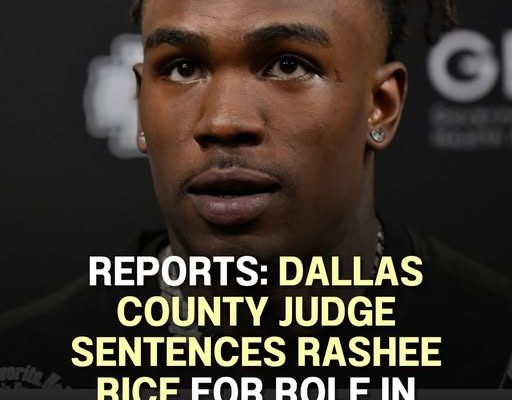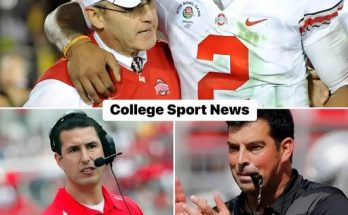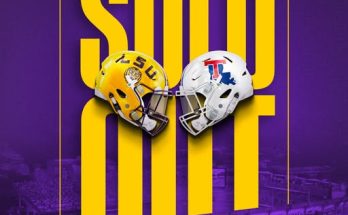In the landscape of professional football, few teams command attention the way the Kansas City Chiefs do. With multiple Super Bowl appearances and championships under their belt in recent years, the team has become a powerhouse built around quarterback Patrick Mahomes and head coach Andy Reid. Among the offensive weapons used to keep the dynasty humming is wide receiver Rashee Rice, a young player with significant talent and even more potential. However, the bright lights of the NFL lifestyle, combined with personal decisions off the field, have led to a serious and potentially career-altering incident. Rashee Rice, once known purely for his explosiveness on the gridiron, is now the subject of media scrutiny and legal discipline, as he has received a 30-day jail sentence stemming from his role in a high-speed car crash.
The incident, which occurred in March 2024, shocked both Chiefs fans and the larger NFL community. According to law enforcement and multiple witness reports, Rice was one of the individuals involved in a dangerous high-speed race on the North Central Expressway in Dallas, Texas. Dash cam footage from surrounding vehicles, as well as street cameras and eyewitness accounts, pieced together a story that became increasingly troubling. Driving a Lamborghini SUV at speeds in excess of 100 miles per hour, Rice and another driver lost control, causing a multi-car crash that left several people injured and multiple vehicles significantly damaged. The fact that the crash occurred in a heavily trafficked public area heightened the risk and drew immediate condemnation from public safety officials.
Police noted that Rice and the other driver, later identified as SMU defensive back Theodore “Teddy” Knox, fled the scene on foot after the crash. In the days that followed, Rice turned himself in to authorities. His cooperation in the case played a role in the final sentencing, but the legal consequences could not be entirely avoided. Prosecutors charged him with multiple offenses, including collision involving serious bodily injury, collision involving injury, and aggravated assault. Eventually, Rice accepted a plea deal that included a 30-day jail sentence, probation, community service hours, and restitution payments to the victims. While some may argue that the punishment was lenient given the potential severity of the incident, others see it as a turning point in Rice’s life and career.
Rashee Rice’s background is critical in understanding the weight of the situation. Born in North Richland Hills, Texas, Rice was a standout at SMU before entering the NFL. His rookie season with the Kansas City Chiefs in 2023 showed flashes of brilliance, as he quickly became one of Mahomes’ favorite targets. With speed, agility, and route-running prowess, Rice had all the makings of a future star. His work ethic and performance had fans and analysts alike predicting a long and successful NFL career. But in the world of professional sports, talent alone is not enough. Discipline, decision-making, and personal accountability are just as vital.
This incident underscores a broader and recurring issue within professional sports — the tension between personal freedom and public responsibility. Athletes are often thrust into the limelight at a young age, given substantial financial resources, and placed on a pedestal by fans and media alike. For some, the transition from college student to professional celebrity is seamless. For others, the adjustment can be fraught with challenges. The temptation to indulge in risky behavior, especially when surrounded by similarly youthful and high-profile peers, is very real. High-speed driving, partying, and disregard for rules have brought down careers before, and they continue to threaten the futures of many young athletes.
What makes the Rashee Rice case especially compelling is the intersection of legal responsibility and public perception. In the age of social media, where videos and updates spread instantly, Rice’s actions were on display for the world to see. The footage of the wreck and the aftermath quickly went viral. The perception that he attempted to evade consequences by fleeing the scene only intensified criticism. While his eventual cooperation with authorities was commendable, the initial choice to run instead of assist those injured or to take accountability in the moment is something that has stayed in the public conscience. This dynamic raises questions about how professional teams should respond when their players are involved in off-the-field incidents.
The Kansas City Chiefs, for their part, have been relatively reserved in their public comments. As a franchise, they’ve dealt with legal and disciplinary issues before, including high-profile cases involving other players in past seasons. The organization has emphasized a commitment to supporting players’ personal development while also upholding a standard of accountability. It remains unclear what internal disciplinary action, if any, the Chiefs will take. The NFL, which has its own Personal Conduct Policy, may choose to issue a suspension or fine independent of the legal outcome. Past precedents suggest that league punishment is likely, especially when an incident involves public endangerment.
For young players looking up to someone like Rice, this situation is a teachable moment. The lesson here is that actions have consequences, even when you are among the most talented athletes in the world. Fame does not create immunity. Driving over 100 miles per hour in a public setting is not a harmless act of adrenaline-seeking — it’s a serious public safety threat. The potential for death or permanent injury was not hypothetical. It was narrowly avoided. That fact alone is enough to justify the outcry and demand for accountability. It is also a call for better education, mentorship, and support systems for young players entering the professional world.
Many in the football community have rallied around Rice with messages of support but also caution. Former players have spoken about their own missteps and how one decision can change the trajectory of a career or even a life. Organizations like the NFL Players Association (NFLPA) have increased their focus on personal development programs in recent years, emphasizing financial literacy, mental health, and responsible decision-making. But clearly, more work needs to be done. The transition from college athlete to professional player is not just about handling playbooks — it’s about navigating adult responsibilities under intense public scrutiny.
Rashee Rice, despite this setback, is still young. At just 24 years old, he has time to rehabilitate his image and resume his career — but that process will not be easy. Public trust is hard to earn and easy to lose. He will now be viewed through a different lens, one that doesn’t solely focus on his yards per game or touchdown receptions, but on whether he has matured and learned from his mistakes. The 30-day jail sentence is just one part of that journey. Community service, possible league penalties, and private soul-searching will define what kind of person and player he ultimately becomes.
This case also has implications for how fans view their sports heroes. There is a long-standing tendency in American culture to idolize athletes. Their feats on the field often make us overlook or excuse their flaws off it. But that mindset is shifting. Fans are demanding accountability. The expectation now is that athletes use their platforms not only to entertain but to act responsibly, especially when public safety is concerned. Rice’s case is a sobering reminder that athletic talent does not grant moral exception.
In the long term, Rashee Rice’s future is uncertain. If he takes the right steps — shows genuine remorse, commits to personal growth, supports those affected by the crash, and makes better decisions — redemption is possible. The NFL is a league that offers second chances to those who prove they are worthy of them. But those chances are not guaranteed. He will need to demonstrate not just to his coaches or teammates, but to the broader public, that he understands the gravity of what occurred.
For now, Rashee Rice will have time to reflect, perhaps more than he anticipated. Thirty days in jail may not seem long compared to the potential devastation the crash could have caused, but it’s a potent symbolic sentence. It reflects a legal system that is increasingly unwilling to look the other way when high-profile individuals endanger lives. It also reflects society’s growing insistence that role models live up to the standard they so publicly represent.
What happens next will depend entirely on Rice. His choices moving forward — how he interacts with the community, how he carries himself in interviews, how he treats teammates, how he conducts himself both on and off the field — will determine whether this incident becomes a turning point or the beginning of a career downfall. The Kansas City Chiefs will have to weigh those developments as they make their own internal decisions, knowing full well that team chemistry, public image, and competitive success are all on the line.
This situation should serve as a cautionary tale, not just for athletes but for everyone who finds themselves in a position of influence. Responsibility is a full-time job. When you drive a luxury sports car down a public road at dangerous speeds, you’re not just risking your life — you’re risking the lives of innocent strangers. And when you flee from the wreckage rather than help, you send a message that accountability is optional. Rice now has the opportunity to change that message, to turn a reckless mistake into a lesson, and perhaps even to lead by example. Whether he does so remains to be seen, but the world is watching, and the clock is ticking.



